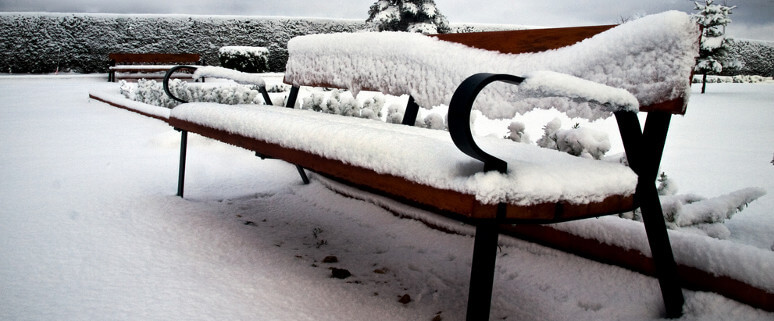
On average, New Yorkers must deal with the ravages of winter snow annually between November and March. While snow may be nice to look at, there are numerous problems to deal with including snow removal and walking on slippery sidewalks. Slipping and falling on ice can cause serious injuries including broken bones, spinal injuries and head injuries. New York property owners have a legal responsibility to ensure their properties including walkways and sidewalks are clear of snow and ice.
New York Laws Pertaining to Snow and Ice Removal
Landlords and tenants may be held financially liable if they fail to remove snow and ice from their sidewalks. New York Administrative Code Chapter 1 - § 16-123 specifically states: “Removal of snow, ice and dirt from sidewalks; property owners' duties. a. Every owner, lessee, tenant, occupant, or other person, having charge of any building or lot of ground in the city, abutting upon any street where the sidewalk is paved, shall, within four hours after the snow ceases to fall, or after the deposit of any dirt or other material upon such sidewalk, remove the snow or ice, dirt, or other material from the sidewalk and gutter, the time between nine post meridian and seven ante meridian not being included in the above period of four hours.”
While the law may be clear about the responsibility of removal of snow and ice, for someone who has fallen, this may be little consolation.
Avoiding Slipping on Snow and Ice
While it may be impossible to avoid winter weather, there are some basic tips you can use to prevent falls on ice during the winter months. Regardless of your age, or where you are heading on a snowy winter morning, you can minimize the risk of a fall on snow and ice by:
- Wearing practical shoes – your footwear is important to your safety. Leather soled shoes do not typically offer enough traction on slippery surfaces; you would be wise to try a rubber-soled shoe on slippery mornings.
- Paying attention to surroundings – avoid getting distracted while you are walking. Using your cell phone when you are navigating slippery sidewalks can be very hazardous. Keep in mind, black ice may not be readily visible; pay attention to where you are putting your feet.
- Slowing down in bad weather – when you are walking on any wet surface, it is important to avoid rushing. Allow yourself plenty of time to reach your destination particularly if there has been a snowstorm or rainstorm and the temperatures drop dramatically.
When Falls Do Occur on Snow or Ice
The most important thing you can do if you should slip and fall on snow or ice is to ensure you get medical attention immediately. Keep in mind, when you fall your body’s natural reaction is to produce adrenalin which can result in your body masking any pain. You should not assume that you will feel pain immediately; take the time to go to an emergency care facility or your own doctor to check for injuries. Once you have sought medical care, you should immediately notify the property owner that you have fallen on their property. You should advise them that you have fallen on your property and that you have sought medical attention. If you have any injuries, they should be informed as well. The property owner should advise you of the name and contact information for their insurance company since you can file a claim for your hospital visit and doctors visit.
What Happens When Property Owners Do Not Cooperate
If you should find a property owner denies you fell on their property or they refuse to provide you with proper information regarding their insurance you should immediately contact a personal injury lawyer who has experience handling slip and fall on ice accidents. Since the property owner is responsible for paying your medical costs and the care you require after a slip and fall on ice accident, an attorney can help preserve your rights. Under New York Civil Practice Laws & Rules section 214, victims of a slip and fall accident have three years from the date of a fall to file a personal injury suit.
Some of the common injuries people may face after a slip and fall on ice include broken bones, spinal cord injuries and head injuries. You have a right to expect you are safe as you make your way down the streets of Bronx, NY but if you have fallen because a property owner failed to keep their sidewalks free of snow and ice, you have the right to see compensation for your injuries.



